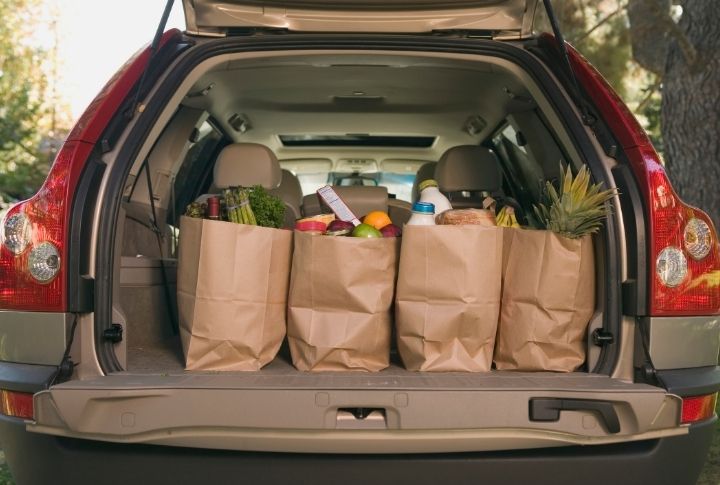
15 Things You Should Never Leave in Your Car

Let’s face the fact that our cars often become mobile storage units, crammed with everything from gym gear to half-empty water bottles. But did you know some of these items can cause significant problems if left in your vehicle? Get ready to clean out your car and learn why these common items are better off elsewhere.
Plastic Water Bottles

You’ve probably tossed an empty plastic bottle or two in your car without a second thought. But those seemingly harmless bottles can cause trouble. When exposed to high temperatures, chemicals from the plastic can leach into the water, potentially posing health risks. Plus, they clutter up your space and roll around annoyingly. Make it a habit to recycle them as soon as you get out of the car.
Electronics

Aside from the obvious theft risk, extreme temperatures can wreak havoc on your devices. Heat can damage batteries, screens, and internal components, while cold can cause condensation and other issues. If you must leave electronics in your car, store them in a way that minimizes exposure to temperature fluctuations, but remember: taking them with you is always safer.
Perishable Groceries

Ever left a carton of milk in your car, only to discover it hours later? Perishable foods like dairy, meat, and even certain fruits can quickly spoil when left in a hot car. Not only will they smell terrible, but they can also attract pests. Always take your groceries inside promptly. If you know you’ll be running other errands, consider carrying a cooler with ice packs to keep perishables fresh.
Important Documents

Your car’s glove compartment might seem like a convenient spot to stash documents, but it’s not secure. Papers like your passport, social security card, or checks can be easily stolen. Furthermore, high temperatures can cause ink to fade or paper to deteriorate. To protect your personal information, store important documents at home or in a secure, locked location.
Medications

Extreme temperatures impact the potency and safety of medications. Heat can induce some drugs to degrade, and the cold can make others less effective. If you need to carry medication, consider a small, insulated bag to maintain it at a stable temperature. Always check with your pharmacist about the best storage conditions for your medications.
Cosmetics and Lotions

Think twice before leaving your favorite lip balm or hand cream in the car. Temperature fluctuations alter the consistency and effectiveness of these products. Heat makes them melt or separate, while cold makes them too thick to use. Keep a small bag with your essentials and take it with you to avoid any messy surprises.
Spare Change

Sure, it’s handy to have some coins on hand for parking meters or tolls, but your car’s cupholder isn’t the best place. Not only does it encourage clutter, but spare change is also a magnet for bacteria. Instead, hold a small coin purse in your bag or use a designated container with a lid. Your car will remain cleaner and reduce the risk of germs spreading.
Clothing

Leaving clothes in your car can lead to unpleasant odors, especially if they’re damp or sweaty. Over time, the fabric can absorb odors from the car itself. If you frequently change clothes on the go, consider a garment bag or a designated space in your trunk to keep them fresh and organized. Don’t forget to take gym clothes and shoes inside to avoid mildew.
Children’s Toys

Toys, especially ones with batteries or electronic parts, are better off at home. Heat can cause batteries to leak, and electronic components can be damaged. Have a small, portable bag for any toys your kids require during car rides, and take it to the house when you’re done traveling.
Crayons and Markers

Art supplies and cars don’t mix well. Crayons melt into a gooey mess, and markers leak, permanently staining seats and carpets. If your child enjoys drawing on the go, consider travel-friendly alternatives like dry-erase boards or magnetic drawing pads.
Alcoholic Beverages

Leaving alcohol in your car is not only illegal in many places but also dangerous. Heat can cause bottles to explode or change the flavor and quality of the beverage. Always transport alcohol directly from the store to your home. If you must make multiple stops, leave it in the trunk to reduce the risk of overheating.
Musical Instruments

Instruments are delicate and sensitive to temperature changes. Heat warps wood and cold makes strings brittle. When you are headed to your destination, bring your instruments in their cases. A high-quality case that offers insulation and protection is essential for musicians on the go.
Pet Food

Just like human food, pet food tends to spoil if left in a hot car. Spoiled pet food will make your furry friends sick and create unpleasant odors in your vehicle. Remember to bring pet food inside right away. In cases of traveling, pack just enough for the trip in a sealed container and store it in a cool place.
Batteries

Loose batteries rolling around in your car can be a safety hazard since extreme heat can cause them to leak or even explode. Store spare batteries in a safe, temperature-controlled environment at home. Use a battery case and avoid leaving them in the car for extended periods.
Emergency Items

While it’s good to be prepared, you don’t always have to carry every emergency item you own in your car. Overloading your vehicle with tools and supplies can reduce fuel efficiency and create unnecessary clutter. Assess what you realistically need based on your driving habits and local weather conditions.


